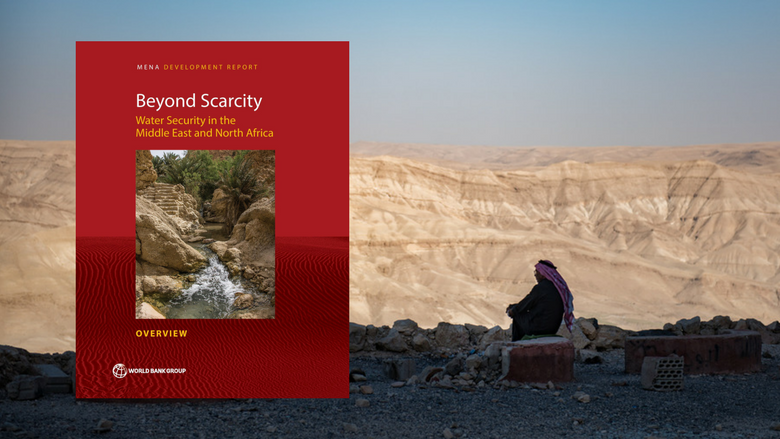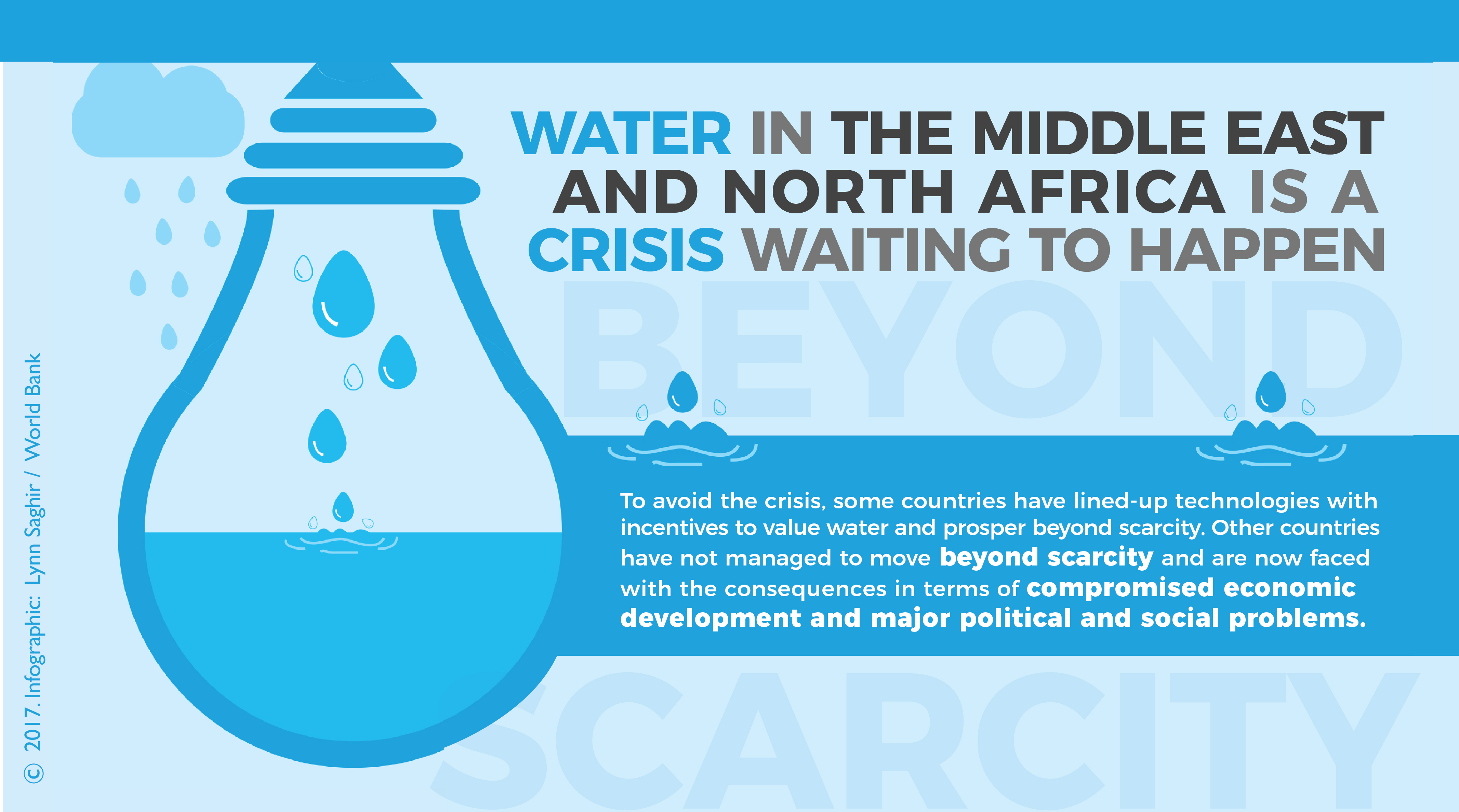Key Findings:
- The Middle East and North Africa is a global hotspot of unsustainable water use, especially of groundwater. In some countries, more than half of current water withdrawals exceed what is naturally available;
- 82% of wastewater is not recycled, presenting a massive opportunity to meet water demands;
- The region has the greatest expected economic losses from climate-related water scarcity, estimated at 6–14 percent of GDP by 2050;
- Total water productivity in the Middle East and North Africa is only about half the world’s average;
- Despite its scarcity, the region has the world’s lowest water tariffs and the highest proportion of GDP (2 percent) spent on public water subsidies;
- Flood and drought risks are increasing and are likely to harm the poor disproportionately;
- Some 60 percent of surface water resources in the region are transboundary, and all countries share at least one aquifer, highlighting the importance of cooperative management of shared water resources;
- Positive innovations are already taking place in the Middle East and North Africa:
- Morocco’s nation-wide efforts on groundwater management;
- Jordan’s efforts to harness private sector innovation, financing for recycling wastewater, and to enhance supply through desalination;
- Saudi Arabia pursuing reforms to reduce untargeted subsidies and enhancing the role of private operation in support of public interest outcomes;
- Egypt’s renewed focus on strengthening local accountability for water supply and sanitation services – particularly in under-served rural areas.
- The real challenge is to generalize and accelerate these positive innovations throughout the Region. This requires a “new water consciousness” amongst citizens which recognizes that moving beyond scarcity is everyone’s responsibility be they a farmer, business, public agency, or as individuals.


